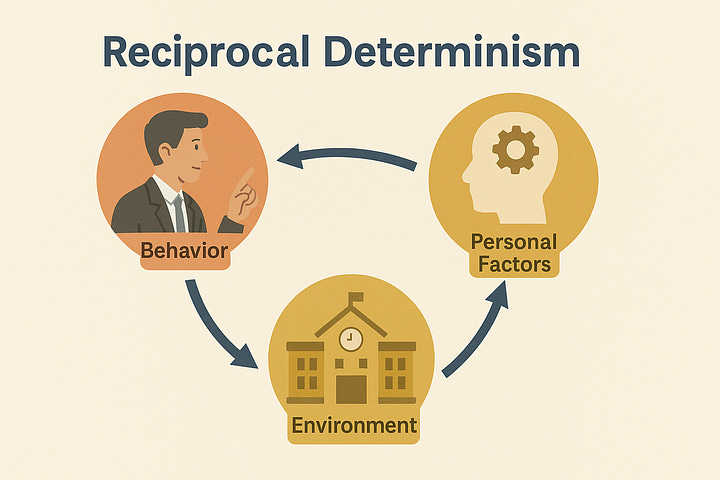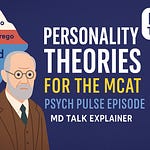This episode of MCAT Psych Pulse explores observational learning, mirror neurons, and theories of attitude change including the Elaboration Likelihood Model and Social Cognitive Theory—essential content for the MCAT psychology section.
🎧 MCAT Psych Pulse: Episode 8
“Learning by Watching: Observational Learning and Attitude Change Explained”
In this high-yield episode of MCAT Psych Pulse, host Jennie joins forces with cognitive neuroscientist Dr. Jordan Carter to break down two foundational areas of psychology: observational learning and attitude change—topics every MCAT student must master.
🔍 What You’ll Learn in This Episode:
🧠 Observational Learning:
We start with the fundamentals of observational learning—also known as modeling—where behavior is acquired not through direct experience, but by watching others. Dr. Carter explains how Albert Bandura's Bobo Doll Experiment revolutionized our understanding of imitation and aggression.
We explore:
Mirror neurons and their role in vicarious learning and empathy
Real-life examples, such as children mimicking adult speech and behavior
How observational learning applies to social norms and moral development
💬 Attitude and Behavior Change:
The second half of the episode tackles how attitudes form and change, a critical component of behavior.
We unpack:
The Elaboration Likelihood Model (ELM): Learn the difference between the central and peripheral routes to persuasion—and when each is most effective
Social Cognitive Theory: Understand how personal, behavioral, and environmental factors interact to influence behavior and belief systems
Influencing factors: credibility, attractiveness of the source, emotional appeal, and message clarity
Dr. Carter also discusses how these theories are applied in:
Public health campaigns (e.g., anti-smoking ads)
Clinical therapy (e.g., cognitive restructuring in CBT)
Social influence (e.g., peer pressure, authority figures)
🎯 Why This Matters for the MCAT:
The MCAT doesn't just test definitions—it evaluates your ability to apply psychological theories in real-world contexts. Understanding how we learn socially and change behavior helps future physicians recognize the root of patient noncompliance, social behaviors, and public health challenges.
From vicarious reinforcement to attitude inoculation, this episode equips you with the terminology, mechanisms, and examples needed to ace MCAT psychology questions.
📝 Don’t forget to take notes, download the companion study guide, and subscribe for more in-depth breakdowns of high-yield MCAT topics.
🎙️ Listen now and explore how watching others shapes who we are.




📚 MCAT Psych Pulse is produced by MD Talk: Health and Fitness. All content © 2025.











Share this post